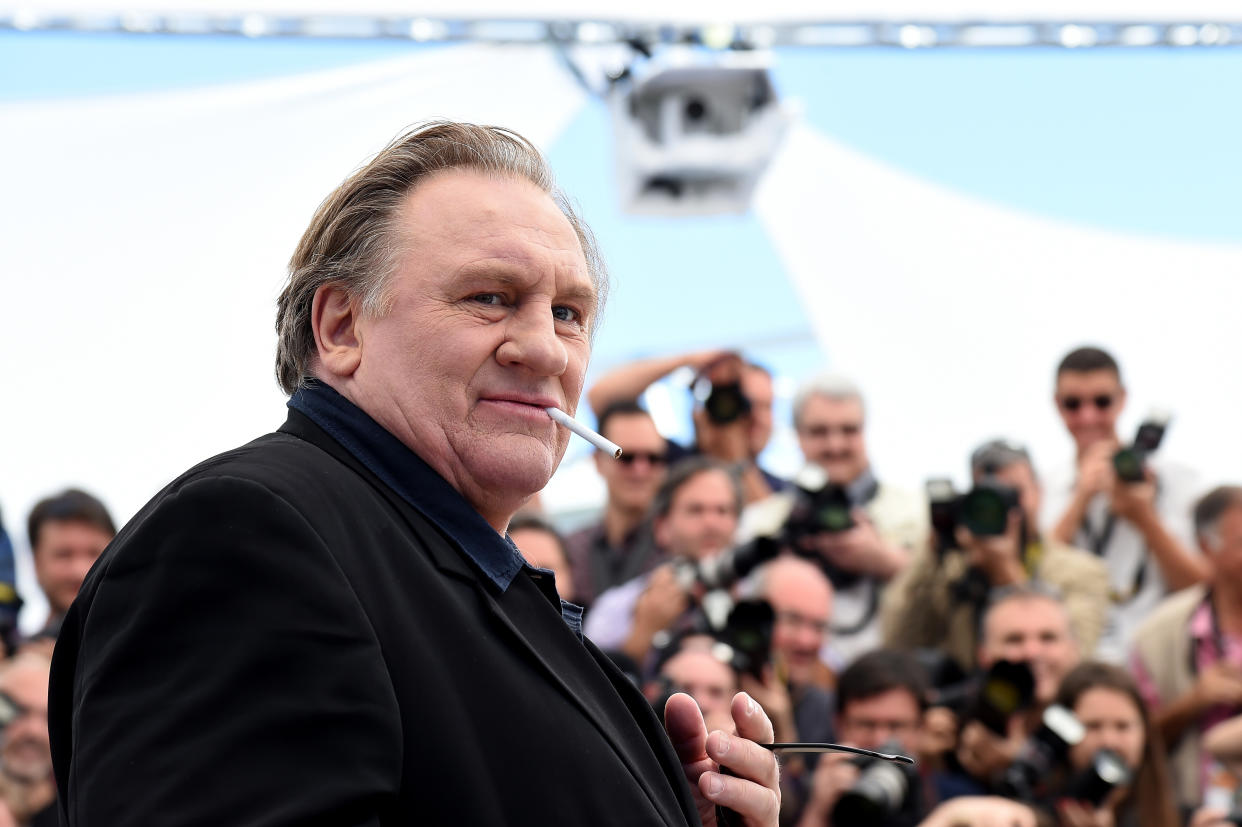Gerard Depardieu: France takes sides over disgraced actor

- Oops!Something went wrong.Please try again later.
- Oops!Something went wrong.Please try again later.
"For several years, a smell of sulphur has surrounded the name of Gérard Depardieu," said La Dépêche (Toulouse).
In 2018, the actor, who has played many "iconic roles" over his long career, was accused of rape by Charlotte Arnould, an aspiring actress (who waived her right to anonymity). He is still under criminal investigation. Since then, 15 other women have publicly accused Depardieu of rape and sexual assault, mostly on film sets.
The background
The actor, now 75, has denied the accusations, but in December his image took another blow with the TV documentary Gérard Depardieu: The Fall of the Ogre. It aired footage of the actor on a trip to North Korea in 2018, repeatedly making obscene comments to women and about women – even about a ten-year-old girl – and sexually harassing a female translator. Many in film and TV said they would not work with him again.
In recent weeks, though, many prominent people have rallied to his cause. Before Christmas, President Macron condemned the "manhunt" against him. And on 26 December, an open letter in Le Figaro, signed by 56 French stars – including Charlotte Rampling, Nathalie Baye and Carla Bruni – described him as the victim of a "lynching", a "torrent of hatred". "Don't erase Gérard Depardieu," they begged.
The latest
It is shameful, said Samira Sedira in Libération (Paris), that this letter contained "not a single word" about "the extras, the dressers, the stage managers" who have testified to Depardieu's appalling behaviour. The letter describes him as a "giant of cinema", the "greatest of actors", who "contributes to the artistic brilliance of our country" – as if that is a defence against sex crimes. "When we attack Gérard Depardieu, we attack art," it claims. This is rubbish. The whole point is that Depardieu's stature as an artist "allowed him to act with impunity for years". The artist, however "radiant" he may be, is still "above all a man, a citizen, an individual responsible for his actions".
True enough, said Bertrand de Saint Vincent in Le Figaro (Paris). But in Depardieu's case, we have gone straight from "complacency" and impunity to hysteria and vigilante justice. We must remember that he has not been convicted of anything at all. Was it really a good idea, in the circumstances, to take away his Legion of Honour medal, as the 0culture minister, Rima Abdul Malak, tried to do? To remove his waxwork from the Musée Grévin (France's Madame Tussauds)? Justice should not "be exercised blindly on social media, as in a western where the bastards are hanged high and fast".
The support for Depardieu goes well beyond respect for due process, said Maud Vergnol in L'Humanité (Paris). It is disgusting that the president of the republic should declare that a man facing criminal charges and multiple harassment allegations "makes France proud". It's the same old story: the powerful protecting the powerful, while those who have been "attacked" and "humiliated" are "told to smile and shut up". Many hoped that the #MeToo movement had changed France – "a little". But there was a strong backlash against #MeToo, which was dismissed as a puritanical witch-hunt by the likes of Catherine Deneuve – and the same thing is happening again.
The reaction
L'affaire Depardieu has triggered wildly different reactions across France, said Agnes Poirier in The Guardian. "It has even felt at times like a generational war between old and young." Clearly, many feel that his crudeness "may be deplorable, but it is not a crime"; that the cultural world needs its "sacred monsters".
But more than 8,000 artists, writers and others, mostly younger people, have signed a new letter condemning him and his defenders. Either way, Depardieu looms large in the French imagination; he has played Danton, Balzac, Rodin, Cyrano de Bergerac and Obelix. He will not be easily erased.

